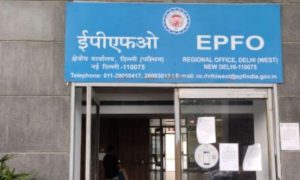Diwali 2024: These 7 states impose ban on firecrackers for a greener celebration; all details here
As winter approaches, and so is Diwali, many places in India like Tamil Nadu, Punjab, Haryana, and Delhi, have adopted preemptive measures to keep the rising pollution levels in check. These places have enforced stringent firework usage rules. With no relaxation in place yet, people in those places should be aware of the stringent rules. To reduce the worsening pollution situation, a complete ban on the manufacture, storage, sale, and usage of any firecrackers other than ‘green’ ones is in place this year. The details of each state’s laws have been outlined here.
Also Read– American EB-5 program offers an appealing alternative to Indians amidst H-1B visa uncertainties
Delhi
Delhi’s measures are particularly stringent, given its severe air quality challenges each winter. The Delhi Pollution Control Committee (DPCC) has imposed a complete ban on the manufacturing, storage, sale, and use of firecrackers, including online delivery. The ban is set to last until January 1, 2025, allowing only ‘green crackers’ for use. For Deepavali on October 31, the permitted window is between 8 PM and 10 PM, while timings for Gurpurab, Christmas, and New Year’s Eve are adjusted to suit their respective celebrations. Green crackers, free from harmful chemicals like barium and lead, are the only type allowed for limited hours on specified festivals.
Bihar
To reduce air pollution during Diwali, the Bihar government has banned the sale and use of all types of firecrackers, including green crackers, in Patna, Gaya, Muzaffarpur, and Hajipur. According to a circular issued by the Patna district administration recently, the decision follows a National Green Tribunal (NGT) directive aimed at maintaining acceptable air quality levels in these cities.
Maharashtra and West Bengal
West Bengal and Maharashtra have both implemented similar regulations that follow the National Green Tribunal’s (NGT) recommendations. With the exception of green alternatives, which produce around 30% less pollution than conventional firecrackers, the sale and usage of all firecrackers are prohibited. However, enforcement is still difficult because illegal firecrackers occasionally enter these states from areas with non-stringent laws. To stop the unlawful distribution of firecrackers, authorities are increasing their level of monitoring.
Punjab
In Punjab, the state government has taken a firm stance by following Supreme Court and NGT directives. The Environment (Protection) Act empowers the state to control the sale and use of firecrackers through strict regulations. As a result, firecracker use is limited to specified hours on Deepavali and other major festivals, including Gurpurab, Christmas, and New Year’s Eve. These measures seek to balance festive traditions with environmental sustainability.
Read More: 10 Common Terms In Your Credit Report You Must Know
Haryana
The rules in Haryana, especially in Gurugram, are similar to those in Delhi, which is nearby. During certain hours on Deepavali and Gurpurab, green crackers are allowed. In an effort to avoid excessive pollution levels during the winter, the Haryana government has released warnings highlighting the value of green crackers in pollution mitigation.
Tamil Nadu
Tamil Nadu has taken a unique approach, setting specific time slots for Deepavali firecrackers, from 6 AM to 7 AM and from 7 PM to 8 PM. The Tamil Nadu Pollution Control Board (TNPCB) has also issued an advisory urging responsible firecracker use to minimise pollution and noise levels. To further reduce environmental and health risks, TNPCB is collaborating with other government agencies to educate the public on safe practices.
For more news like this visit Officenewz.com





































